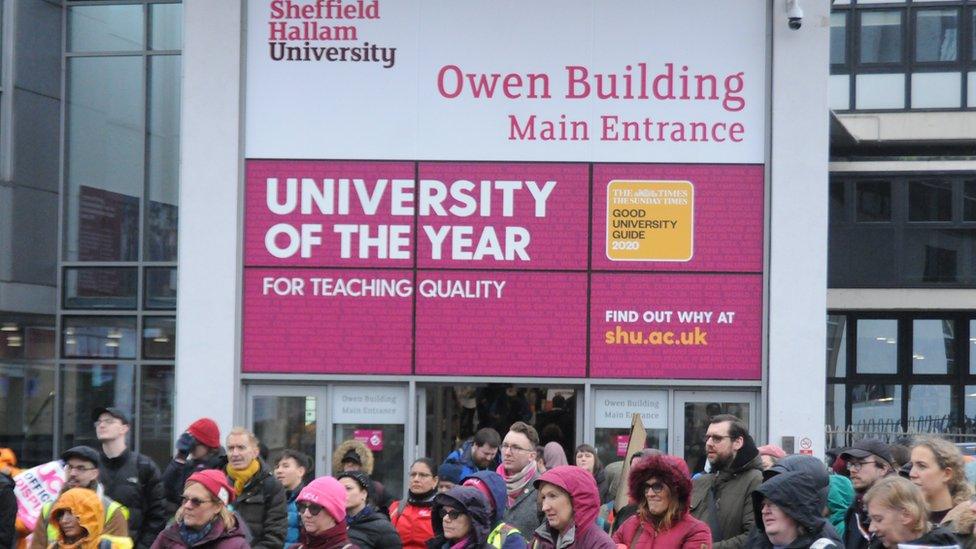Coronavirus: Students need loan help says Sheffield Hallam chief
- Published
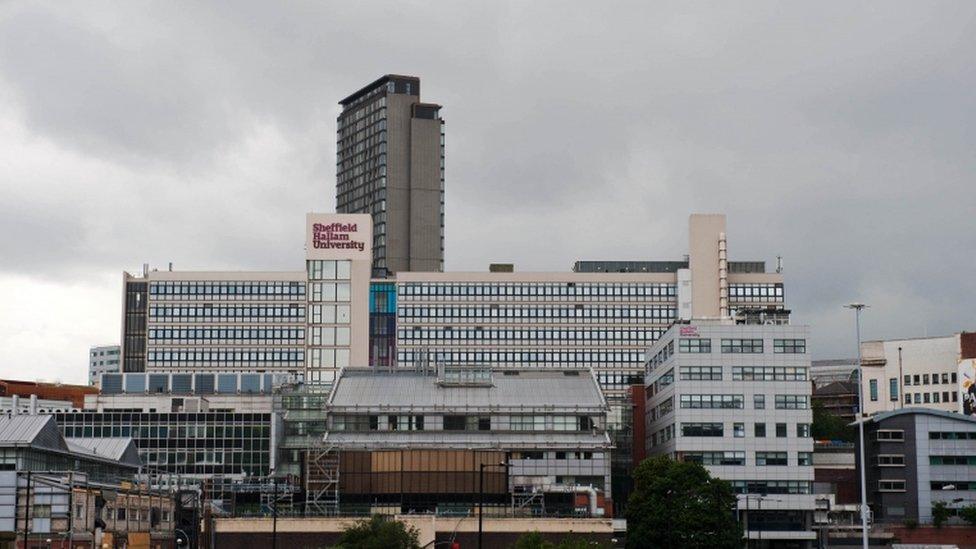
Students whose courses have been disrupted by coronavirus should be given more favourable loan repayments, according to a university chief.
Sir Chris Husbands, the vice chancellor of Sheffield Hallam University, said it would be sensible to make adjustments" to reflect the "highly unusual year".
"We have a moral right to do something," the vice chancellor said.
A Department for Education spokesperson said: "We understand this has been an extremely difficult time for students."
A lot of the university's activity is moving online due to the pandemic but students will still have some access to lecturers and facilities.
"It breaks my heart that we can't offer what we offered students last year," Sir Chris said.
However, he is not suggesting a reduction in students' fees.
Sir Chris suggested a change could mean an interest rate reduction, a reduction in the proportion of income paid, an increase in the income threshold at which it is paid, or changing the period of time the loan is paid over.
Larissa Kennedy, president of the National Union of Students (NUS) said: "The student loans system is broken, and the effects of Covid-19 have just highlighted some of the ways that it impacts students."
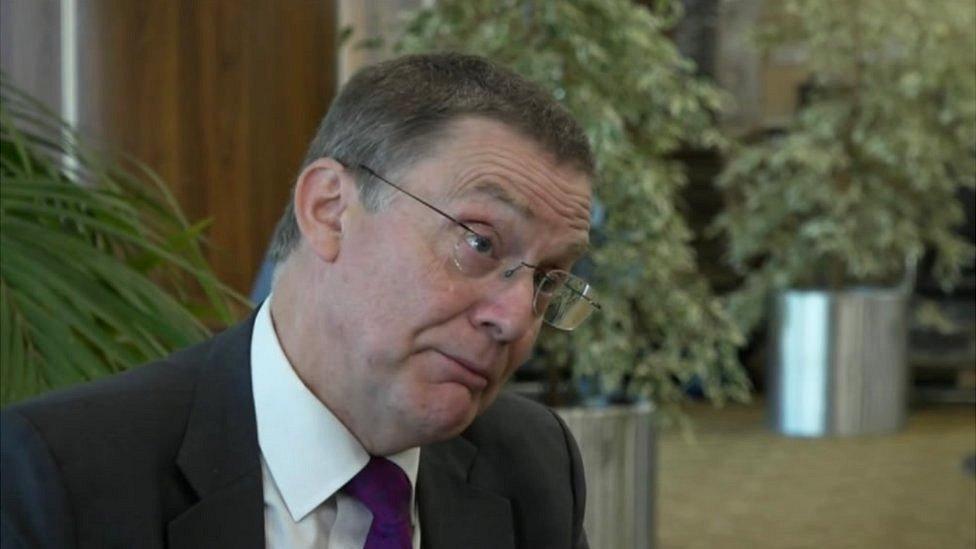
Sir Chris Husbands wants an "adjustment to the repayment regime for fees"
How much a graduate pays back on a student loan, external depends on how much they earn.
Repayments come straight out of pay and graduates do not start repaying their loans until they earn above £26,575 a year.
Over that amount, graduates currently pay back 9% of income.
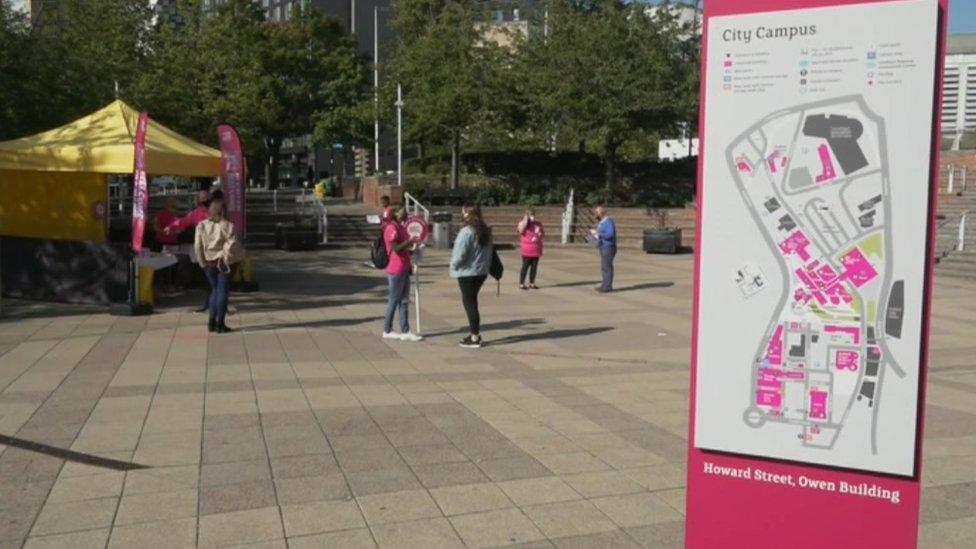
The university has about 31,000 students and is one of two in the South Yorkshire city
The Department for Education said the pandemic had caused "disruption across all areas of society, including education" and the government expected universities to continue to deliver a "high-quality academic experience".
"Our student loans system is designed in a progressive way so that graduates contribute an affordable amount based on their income.
"Monthly repayments are based on earnings, not on interest rates or amount borrowed, and if graduates do not pay back all of the loan within 30 years it will be written off in full", it added.
Ms Kennedy, said students were already anxious about paying their bills and rent and needed support with "the reintroduction of maintenance grants and government investment into hardship funds" for those most severely affected.
The NUS had been "campaigning for years for free education for all, and this must now be a priority", she added.

Follow BBC Yorkshire on Facebook, external, Twitter, external and Instagram, external. Send your story ideas to yorkslincs.news@bbc.co.uk or send video here.
- Published30 March 2020
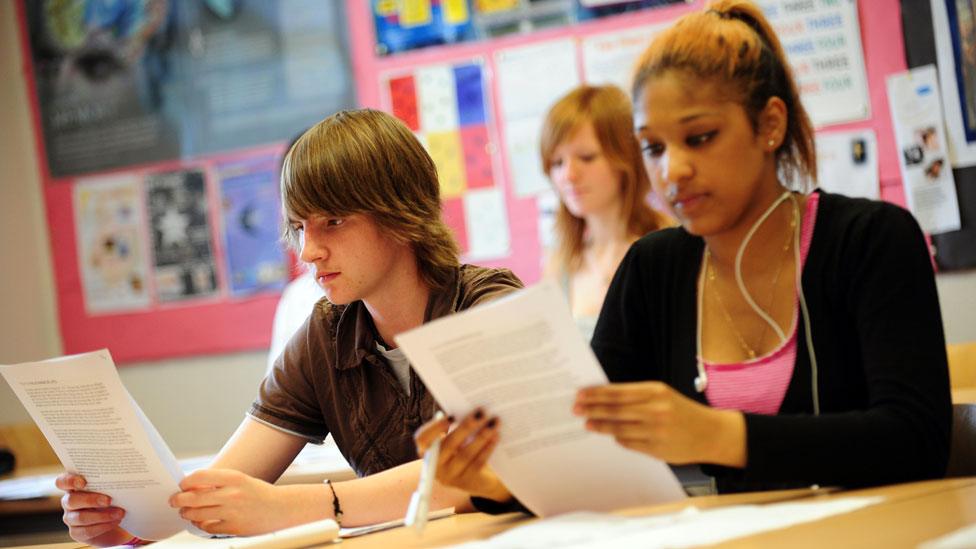
- Published25 February 2022
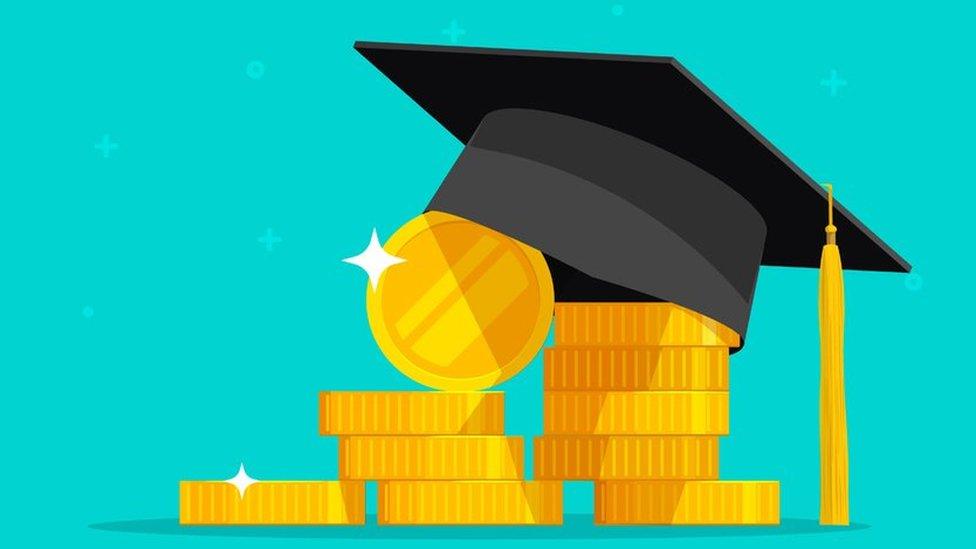
- Published26 November 2019
